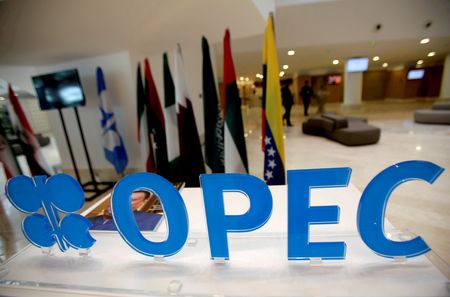WASHINGTON (Reuters) – A U.S. Senate committee this week quietly advanced a bill that seeks to rein in OPEC+ after the oil producer group led by Saudi Arabia and Russia this month agreed to cut output.
The legislation could be debated by lawmakers after the Nov. 8 midterm elections.
The so-called No Oil Producing and Exporting Cartels bill, or NOPEC, gained momentum in the U.S. Congress after the Organization of the Petroleum Exporting Countries and allies decided on Oct. 5 to cut production by 2 million barrels per day.
That was despite lobbying by the administration of President Joe Biden. High oil prices are a vulnerability for Biden and his fellow Democrats who are seeking to keep control of Congress in the elections.
The Senate Judiciary Committee, which easily passed the bill in May, moved the bill on Tuesday to the Senate floor, the Senate website showed. It was “just a paperwork processing step,” a Senate aide said.
Senator Chuck Grassley, a Republican who sponsored NOPEC, tried to attach the legislation to the annual defense policy bill. The effort failed, but the bill could be attached to other legislation later this year. Grassley’s office did not immediately respond to a request for comment.
The future of the bill is now up to Senate Majority Leader Chuck Schumer, a Democrat. The Senate schedule will likely be packed after the elections, which could prevent the bill’s consideration. Schumer’s office did not immediately respond to a request for comment.
On Oct. 6, Schumer said: “What Saudi Arabia did to help (Russian President Vladimir) Putin continue to wage his despicable, vicious war against Ukraine will long be remembered by Americans. We are looking at all the legislative tools to best deal with this appalling and deeply cynical action, including the NOPEC bill”.
If passed by both chambers of Congress and signed by Biden, NOPEC would change U.S. antitrust law to revoke the sovereign immunity that has protected OPEC+ members and their national oil companies from lawsuits over price collusion.
It is unclear exactly how a federal court could enforce judicial antitrust decisions against foreign countries. The United States could also face criticism for its attempts to manipulate markets by, for example, its planned release of 180 million barrels of oil from the emergency oil reserve between May and December.
(Reporting by Timothy Gardner; Editing by Marguerita Choy)


